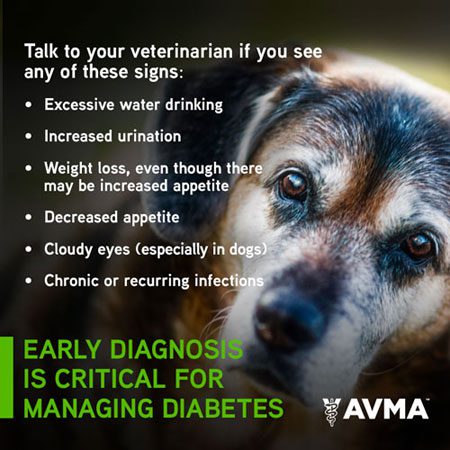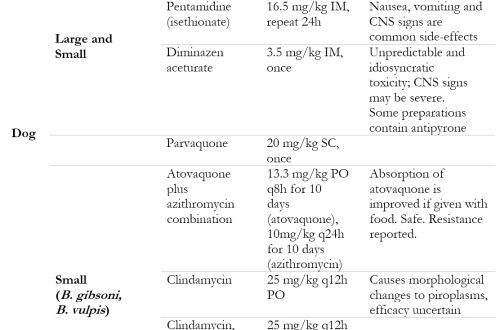
Diabetes in dogs: what you need to know
Contents
What is diabetes?
Diabetes mellitus is a disease in which the dog’s body is not able to effectively process sugar (glucose) and control its level in the blood. Insulin, which is produced by the pancreas, is important for regulating the absorption and content of glucose in the blood. Insufficient insulin production is deadly.
Like humans, diabetes in dogs is a dangerous disease, but it can be controlled. There are two types of diabetes. Although there is no cure for this disease, with proper nutrition, appropriate exercise and, if necessary, insulin, dogs with both type XNUMX and type XNUMX diabetes live happy lives. If you buy the right dog food and follow the advice of your veterinarian, your pet with this disease can enjoy an active life.
What is the cause of diabetes?
A decrease in insulin production is usually caused by dysfunction of the pancreas. The task of this gland is to produce the necessary amount of insulin to regulate blood sugar levels. In some dogs, the action of insulin may be less effective due to hormonal changes or medication. In the event of damage to it, deadly symptoms occur that must be eliminated.
Other factors that can increase your dog’s risk of developing diabetes include:
Body condition. Overweight dogs are more prone to diabetes.
Age. Diabetes can occur in dogs of all ages, but the highest incidence occurs in dogs around 8 years of age.
Floor. The risk of diabetes in female dogs is twice as high as in male dogs.
Breed. Some breeds of dogs (eg Samoyeds, Miniature Schnauzers, Miniature Poodles, Bichon Frize) are more prone to diabetes.
Other factors: poor nutrition, hormonal disorders, stress.
Does my dog have diabetes?
Diabetes is difficult to recognize by its symptoms, as they are similar to those of other diseases, such as kidney disease. Even a veterinarian may need test results to make an accurate diagnosis. Weakness, thirst, frequent urination, rapid weight loss, depression or abdominal pain in a pet are cause for concern: your dog may have diabetes. If you notice these signs, contact your veterinarian without delay.
Signs and symptoms of diabetes:
- Intense thirst
- Weight loss
- Refusal to eat
- Fatigue, lack of energy
- Vomiting
- Cataract
IMPORTANT. If the diagnosis is confirmed, it is necessary to regularly visit a veterinarian to examine the dog. He will conduct a blood sugar test and prescribe the necessary medications to keep your pet healthy.
Treatment and the importance of proper nutrition
Set a strict schedule: it plays the most important role in maintaining a dog’s health. You need to feed her, give her exercise and, if necessary, medicines every day at the same time. This helps keep blood sugar levels constant. Your veterinarian and other specialists will give you the necessary advice on this matter.
Although there is no cure for diabetes, veterinarians say that with insulin, proper exercise, and proper nutrition, the pet’s disease can be controlled. Fiber plays a key role in disease control, as its consumption in moderate to large amounts reduces the need for insulin and blood sugar levels. In addition, fiber makes the body more receptive to insulin.
The health of a dog and its condition in general largely depend on the food that it eats. A balanced diet is an essential part of an active, healthy lifestyle. If your pet has diabetes, you need to pay special attention to the choice of food. Maintaining the metabolism and health of the dog is facilitated by feeds recommended by veterinarians with unchanged nutritional characteristics. For an accurate diagnosis and treatment options, consult your veterinarian for advice and ask them to recommend the most appropriate food to control your dog’s disease.
Questions to ask your veterinarian about diabetes
- What treatment options can you offer for my dog?
- How does nutrition affect treatment regimens?
- Should nutrition be part of my dog’s treatment regimen? Would you recommend Hill’s Prescription Diet to manage my dog’s condition?
- What if I have multiple dogs? Can I feed them all the same food?
- How can nutrition help? What are the advantages of dietary nutrition in the treatment, which includes taking pills and injections?
- What are the pros and cons of using nutrition to control my dog’s diabetes?
- How long do I need to feed my dog the recommended food?
- Ask how diet foods help control diabetes.
- What is the best way to contact you or your clinic if I have questions (email/phone)?
- Ask if your pet will need to be scheduled for a follow-up appointment.
- Ask if a notification or email reminder will be sent.





